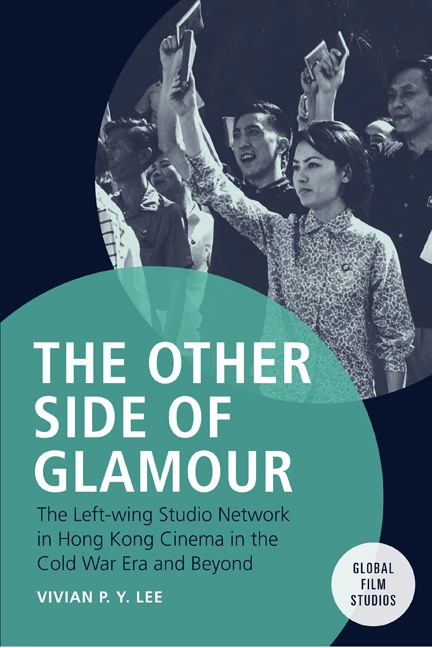 The Other Side of Glamour
The Other Side of Glamour Book contents
- Frontmatter
- Cotents
- List of Figures
- Acknowledgments
- A Note on the Timeline
- Timeline
- Dedication
- 1 Introduction
- 1 The Left-Wing Film Apparatus in Postwar Hong Kong
- 2 Left in the Right Way: Corporate Strategy and the Making of a Popular left-wing
- 3 Remaking Cantonese Film Culture: Union and Sun Luen
- 4 Class, Gender, and Modern Womanhood: Feng Huang and Great Wall
- 5 Corporate Repositioning, Transnational Cultural Brokerage, and Soft Power: Sil-Metropole
- 6 Critical Transitions on the Non-Left: Patrick Lung and Cecile Tang
- 7 From Political Alibis to Creative Incubators: the Left-Wing Film network since the 1980s
- Epilogue
- Bibliography
- Filmography
- Index
5 - Corporate Repositioning, Transnational Cultural Brokerage, and Soft Power: Sil-Metropole
Published online by Cambridge University Press: 17 September 2020
- Frontmatter
- Cotents
- List of Figures
- Acknowledgments
- A Note on the Timeline
- Timeline
- Dedication
- 1 Introduction
- 1 The Left-Wing Film Apparatus in Postwar Hong Kong
- 2 Left in the Right Way: Corporate Strategy and the Making of a Popular left-wing
- 3 Remaking Cantonese Film Culture: Union and Sun Luen
- 4 Class, Gender, and Modern Womanhood: Feng Huang and Great Wall
- 5 Corporate Repositioning, Transnational Cultural Brokerage, and Soft Power: Sil-Metropole
- 6 Critical Transitions on the Non-Left: Patrick Lung and Cecile Tang
- 7 From Political Alibis to Creative Incubators: the Left-Wing Film network since the 1980s
- Epilogue
- Bibliography
- Filmography
- Index
Summary
In the heat of the political upheaval in Mainland China during the Cultural Revolution, Hong Kong left-wing films were condemned as “lacking class consciousness” and “poisonous.” Many filmmakers were forced to attend “thought reform” training sessions in Guangzhou, where they were also dispatched to “join the workers” in factories. The interruptions caused periodic shutdowns and a total suspension of production at Sun Luen between 1970 and 1971. The most direct impact of the Cultural Revolution on the left-wing studios was two-fold. As the party's liberal film policy was replaced by extremist doctrinal imperatives and direct political interference, left-wing films suffered from a dramatic decline in productivity and creative freedom, which inevitably led to setbacks in output quality and popular appeal. The dwindling prospect of left-wing films was intensified by a widespread disillusionment among studio personnel, resulting in the dispersal of stars and production talents. Where productions were still possible, strict party guidelines would be imposed at each stage of the production process. As one filmmaker recalled, much time was wasted on work meetings that were counterproductive to creative work, while some simply found the political climate debilitating. This said, changing market trends and audience preferences may also explain the decline of the left-wing cinema in Hong Kong. Union, the unofficial arm of the left-wing film network, suffered from a talent drain as its leading stars began to retire by the mid-1960s. The studio ceased production in 1964 and officially closed down in 1967. Union's fading out from the film scene coincided with the expansion of the Kong Ngee group studios (Kong Ngee and Sun Ngee) founded by former Union director Chun Kim between 1955 and 1962 (cf. Chapter 6). Under Chun's leadership, the studios’ urban romance and youth films grew in popularity, and its young screen icons eventually replaced their predecessors as the new face of Cantonese cinema.
From 1967 to 1976, the left-wing screen space was dominated by revolutionary films or imports from nearby Communist countries.
- Type
- Chapter
- Information
- The Other Side of GlamourThe Left-wing Studio Network in Hong Kong Cinema in the Cold War Era and Beyond, pp. 96 - 114Publisher: Edinburgh University PressPrint publication year: 2020


